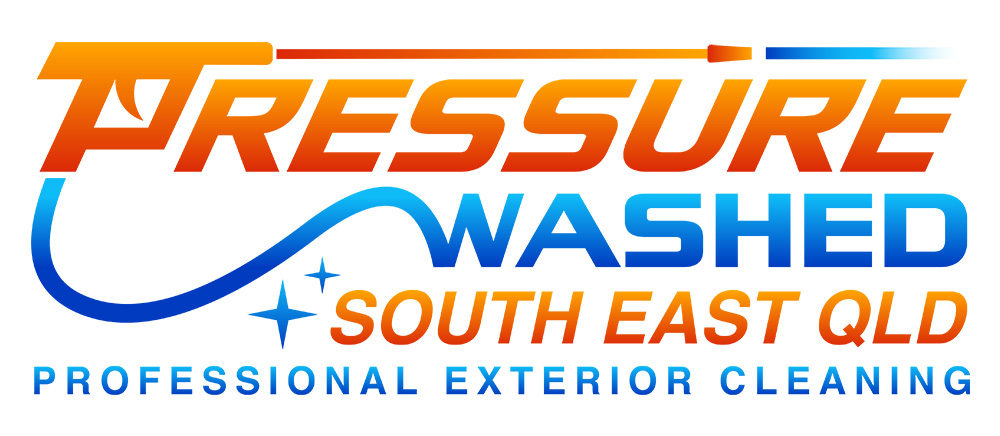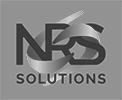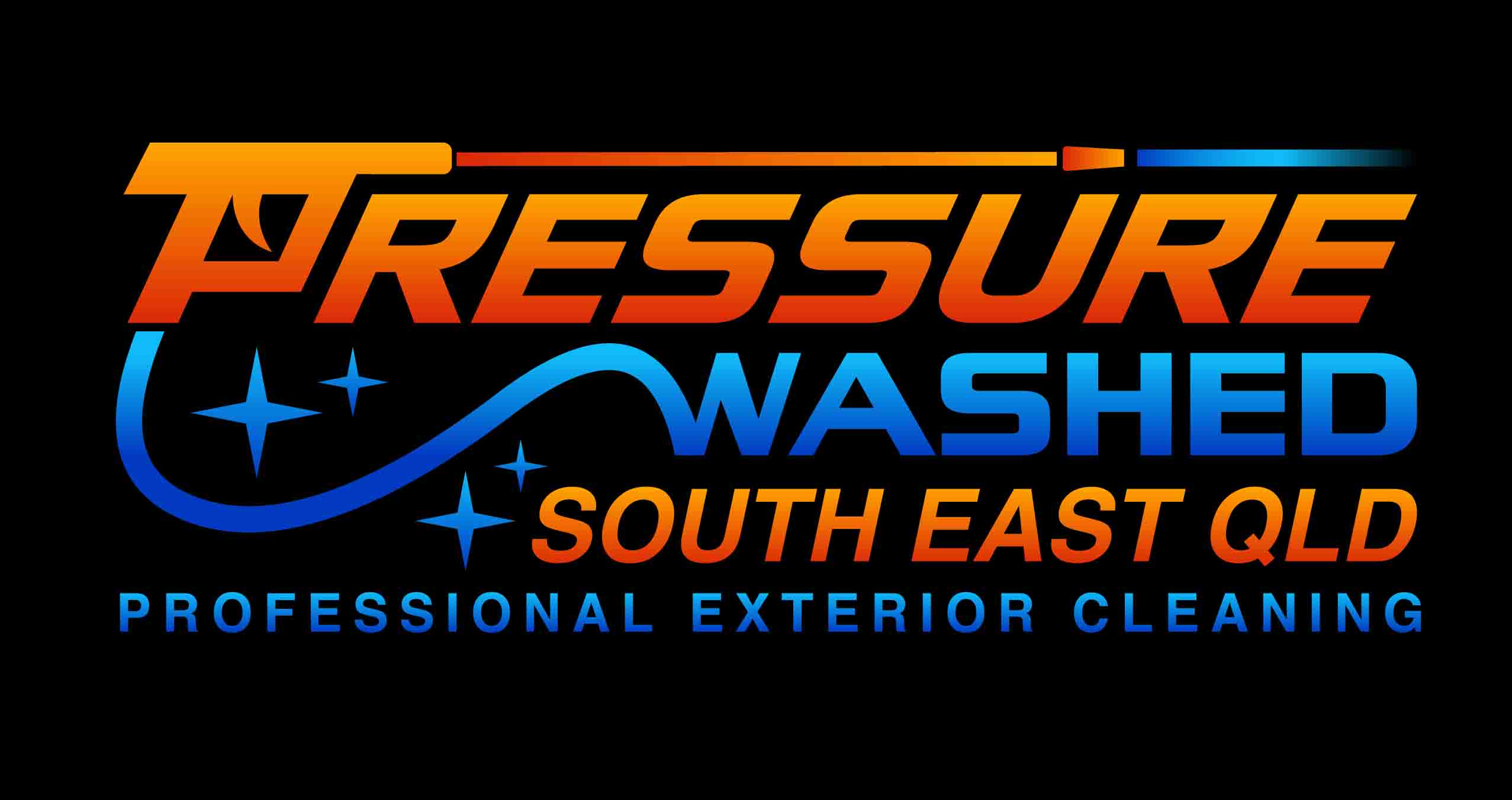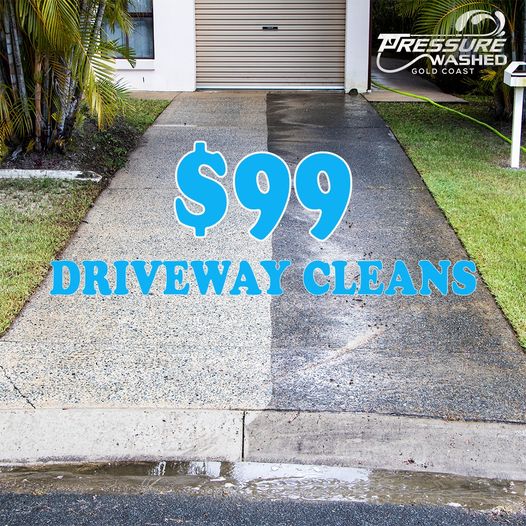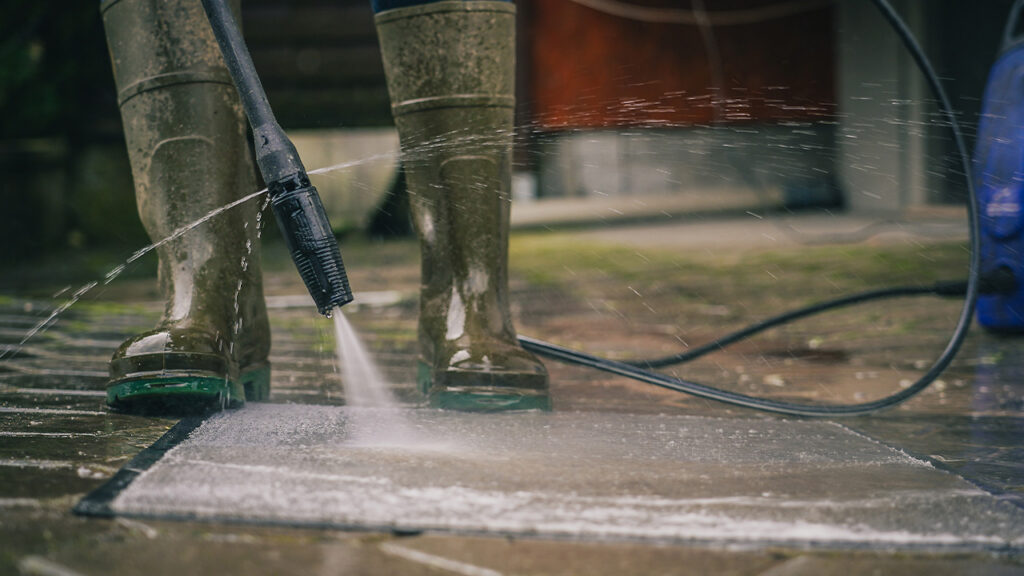
Hot water pressure cleaning, a cornerstone in the realm of power washing, hot water offers unparalleled cleaning efficiency. By incorporating heat, it alters the natural surface tension of water, making it a potent weapon against stubborn contaminants like grease and grime. The temperature range varies based on the machine, but it’s common for these washers to generate water temperatures between 60°C to 110°C. These elevated temperatures accelerate the cleaning process, making it possible to reduce the amount of cleaning detergents used, reduces the Pressure needed to clean, and speeds up the job. It’s a win-win for hot water.
Table of Contents
Three Key Mechanisms of Action
1. Heat: Within the spectrum of high-pressure cleaning, heat plays a pivotal role. When water is heated, its molecules move more rapidly, enhancing its capacity to dissolve and carry away dirt and contaminants. This thermodynamic property means that elevated temperatures can often make the difference between a surface that’s merely cleaned versus one that’s spotless. Especially for tasks such as oil and grease removal, the introduction of heat can make cleaning processes efficient and rapid. Service stations and workshops can benefit greatly from Hot water pressure cleaning.
2. Agitation: In the context of hydro jetting or any form of pressure washing, agitation refers to the sheer physical force exerted by the water. The high-pressure water stream bombards the surface, creating a scrubbing action similar to manual scrubbing, but far more intense and direct. This forceful impact can dislodge even the most stubborn residues, making tasks like oil removal or graffiti removal an easier process with less damage to the surface material.
3. Soap/Detergent: Detergents act as a bridge between water and oily contaminants. For challenges like grease removal or oil removal, regular water will not suffice. Detergents contain surfactants, which break down the barriers between oils and water, enabling an emulsion to form. This chemistry allows for the effective removal of a wide array of debris, from bird droppings and tree sap to graffiti and organic growth.
The Power of Hot Water Pressure Washers
Hot water pressure washers are the unsung heroes of the cleaning world. By synergistically combining heat, agitation, and soap, these machines can tackle a wide range of cleaning challenges. Whether it’s mildew removal from a shady corner of a patio, algae removal from a slippery deck, or even paint removal from a graffiti-covered wall, hot water pressure washers deliver a performance that’s hard to match with conventional cleaning methods such as a stiff brush and bucket of soap. The engine, hot water burner and high pressure pump are the heroes in the hot water pressure cleaning story. Reputable Business’s like Pressure Washed South East QLD offer the Power Washing option.
When is Hot Water Necessary?
Certain cleaning challenges demand the efficiency of hot water and soap. Think of greasy auto mechanics shops, diesel covered service stations, oil-streaked driveways, or grimy patios covered with a layer of fat from the BBQ. Cold water might help displace some of the contaminants, but it’s hot water that truly dissolves and washes them away. This is especially crucial in locations like schools, colleges, shopping centers, day cares, shop front’s, office blocks and cleaning for pre-painitng. Not only does hot water enhance the cleaning process, but it also sanitizes, killing germs, bacteria, and mold spores in its wake. Leaving surfaces much cleaner than cold water would!

Cost Implications of a Hot Water Pressure Cleaners
Investing in a hot water pressure washer might seem hefty initially, especially when compared to its cold water counterpart or standard steam cleaning machines. The burner which heat’s the water and a pump that can handle the high temperatures are more complex than cold water counterparts, justifying the price. However, the returns on this investment are evident in the cleaning process and cost saving in the long run. The speed and efficiency compared to cold water are excellent. Moreover, the reduced need for detergents, owing to the machine’s effectiveness, further cuts down on operational costs.
Heating Mechanism in Pressure Washers
A unique engineering marvel is at work behind the scenes in a hot water pressure washer. Water, sourced from a tap or reservoir is fed to the ‘burner’. In a power washing system, the burner plays the pivotal role in heating the water to high temperatures. As water flows into the system, it’s directed through a series of tightly wound coils that are exposed to the intense heat from the burner. The burner is typically fueled by diesel, the burner generates a controlled flame that rapidly heats the coils. As the water travels through these heated coils, it absorbs this heat, resulting in a significant rise in its temperature. Once heated, the water is then propelled by the high-pressure pump through the hose to the lance nozzle. This process ensures that the hot water is ejected with substantial force, making it optimal for pressure cleaning purposes.
Hot Water Pressure Washer vs. Steam Cleaner
A common point of confusion lies between hot water pressure cleaning and steam cleaning. While both use heat, their applications differ. Steam cleaning employs vaporized water and is invaluable for tasks that require deep sanitation without water saturation, such as upholstery cleaning. On the other hand, hot water pressure washers offer the combined benefits of heat and high-pressure water, making them ideal for heavy-duty cleaning tasks like removing thick layers of grime or extensive algae growth.
Safety Considerations with Hot Water Pressure Washers
Every powerful tool requires respect and understanding to operate safely, and hot water pressure washers are no exception. The combination of high pressure and scalding water demands utmost caution. It’s paramount to wear appropriate protective gear, especially when working in confined areas where splash back of boiling hot water is probable. Regular maintenance checks, including inspecting hoses for wear and cuts, inspection connections for faults and ensuring nozzles are fitted correctly can prevent unexpected malfunctions leading to scald injuries.
Handling Detergents Safely
Many detergents formulated for hot water pressure washers contain potent chemicals. It’s imperative to:
1. Store detergents out of children’s reach.
2. Use protective eye-wear and gloves when handling.
3. Follow manufacturer’s recommendations on dilution and application.
4. Avoid contact with clothes
Avoiding Slips and Falls
Hot water will make surfaces extremely slippery, especially smooth ones like tiles or polished concrete. It’s advisable to:
1. Clean in sections, allowing each to dry or wiping/mopping them down before moving on.
2. Use caution signs or barriers when cleaning public areas.
3. Wear non-slip shoes.

Where Can I Purchase a Hot Water Pressure Washer in Australia?
In Australia, hot water pressure cleaners are available at a variety of retailers, both in physical storefronts and online platforms. Many major hardware and home improvement stores, such as Total Tools and Sydney Tools, offer a selection of these machines suitable for both residential and commercial needs. Specialty stores that focus on cleaning equipment and supplies might provide a wider range of models and brands, tailored to specific cleaning tasks. Additionally, online marketplaces like Gumtree, eBay, and dedicated Australian e-commerce sites for cleaning equipment often list both new and second-hand units. Before making a purchase, it’s advisable to read product reviews, compare prices, and perhaps even seek recommendations from professionals in the field to ensure the chosen model meets your requirements.
FAQs on Hot Water Pressure Cleaning and Power Washing
1. What is the difference between hot water pressure cleaning and cold water pressure washing?
Answer: The difference lies in the water temperature used. Hot water pressure cleaning uses heated water, typically between 60°C to 110°C, making it highly effective for breaking down grease, oil, and stubborn dirt. Cold water pressure washing uses regular temperature water and is suitable for removing dirt, mud, and loose debris. The addition of heat in hot water cleaning aids in dissolving contaminants more effectively and provides a sanitizing effect.
2. Why would I choose hot water pressure cleaning over cold water pressure washing?
Answer: Hot water pressure cleaning is chosen for its ability to break down and remove tough stains and contaminants, especially grease, oil, and gum. The heat enhances the cleaning agent’s effectiveness and reduces the time required for cleaning. It’s also more suitable for sanitizing surfaces due to the elevated temperatures.
3. Is hot water pressure cleaning safe for all surfaces?
Answer: While hot water pressure cleaning is effective, it’s essential to be cautious. High temperatures combined with pressure can damage soft or delicate surfaces. It’s always recommended to test a small inconspicuous area first or consult with a professional before cleaning delicate surfaces like soft wood or certain types of paint.
4. How do hot water pressure washers heat the water?
Answer: Hot water pressure washers typically use a heating coil system. Water passes through a heating coil. This coil is exposed to a flame, usually powered by diesel, natural gas, or propane, which heats the water rapidly before it’s ejected from the washer via a high pressure pump.
5. Can I use detergents or cleaning agents with hot water pressure cleaning?
Answer: Yes, many hot water pressure cleaning systems are designed to be used with specific detergents or cleaning agents. The combination of hot water and detergent can enhance cleaning efficiency, especially for extremely challenging jobs. Always check the manufacturer’s recommendations before using any cleaning agent in your machine. Consider down streaming detergents.
6. Is hot water pressure cleaning more expensive than cold water pressure washing?
Answer: Generally, hot water pressure washers are more expensive due to the complexity of heating mechanisms. However, while the upfront cost might be higher, they can lead to labor and time savings in the long run, especially for commercial applications or particularly challenging cleaning tasks.
7. Is steam cleaning the same as hot water pressure cleaning?
Answer: No, they are different methods. While both utilize heat, steam cleaning uses vaporized water and is mainly for sanitation without saturation. Hot water pressure cleaning combines heat with high-pressure water, making it ideal for heavy-duty cleaning tasks.
8. What safety precautions should I take when using a hot water pressure washer?
Answer: It’s vital to wear protective gear, including, an apron, gumboots, gloves and safety goggles. Avoid pointing the nozzle towards people or pets. Ensure the machine is regularly maintained and checked for any malfunction. Always stand on a stable surface to prevent slips, especially when working on wet surfaces.
9. How often should I service my hot water pressure washer?
Answer: Regular maintenance is crucial for the longevity and safety of the machine. It’s recommended to conduct a basic check-up before each use. However, for in-depth maintenance, such as inspecting the heating element, burner assembly, and other vital parts, an annual service by a professional is advisable. Or check with the manufacturer for the service intervals.
10. Can I use a hot water pressure washer for residential cleaning tasks, like cleaning patios or driveways?
Answer: Absolutely! Hot water pressure cleaning is excellent for residential tasks like cleaning driveways, patios, sidewalks, and more. It’s especially effective in removing grease stains from barbecues, oil stains from driveways, or mold and mildew from patios. Always ensure you use the appropriate pressure settings and nozzle to avoid damaging surfaces.
Conclusion
In the vast realm of cleaning solutions, hot water pressure washers reign supreme, bridging the gap between standard pressure washing and steam cleaning. With the capacity to tackle everything from mold removal on roofs to pet urine stains on patios, these machines offer unmatched versatility and efficiency. By understanding their intricacies and ensuring safe operation, users can leverage their full potential, achieving pristine,
Contact Pressure Washed South East QLD on 0487 000 328 or visit www.pressurewashed,com.au for all your pressure washing needs,
